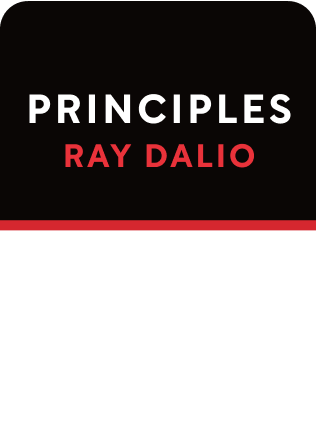

This article is an excerpt from the Shortform summary of "Principles: Life and Work" by Ray Dalio. Shortform has the world's best summaries of books you should be reading.
Like this article? Sign up for a free trial here .
What is automated decision-making? What are the benefits of automated decision-making in business?
Automated decision-making is the practice of making decisions based on predetermined criteria derived from past data. When you recognize a situation as “another one of those,” you can just refer to your rules as a shortcut to good decision-making.
In this article, we’ll explore the benefits of automated decision-making in a business context and consider some real examples of how it is executed in practice.
Automate Your Decision-Making to Keep Emotions From Interfering
What hurts good decision-making methodology the most is emotions. To avoid having your emotions bias your decisions, figure out the criteria underlying your decision-making, then automate the decision as much as you can.
Ideally, you would convert your decision-making criteria into algorithms and have the computer decide alongside you. Here’s how:
- Think through your principles for making decisions.
- Write them out in both words and algorithms.
- Back-test your algorithms with previous data to make sure they would have made good decisions in the past.
- Use the algorithms in real time, in parallel with your thinking brain.
(Shortform note: If it’s unclear what algorithms are, think of an “if-then” statement. For example, “If I receive enough money to pay my bills, I will save 20% of what remains in my retirement account. If I don’t, I will pay my highest interest bills first, then try to cut down my spending.” Having clear rules like this gives you an easy way to make decisions without thinking hard, from scratch, each time.)
Here are a few examples of how Dalio and Bridgewater used automated decision-making:
- Dalio began by writing down his decision-making criteria for trading, so that when he closed the trade, he could reflect on how well the criteria worked. He would backtest these trading rules over a century of data in every country available.
- Bridgewater started using computers in the late 1970s to automate trading criteria and produce trading decisions in response to the environment. Indicators would catch shifting fundamentals and trend-following filters would confirm price movements.
- He’s started automating management and human relationships through tools like recording all meetings, the “dot collector,” and the pain button (more on these tools later). Computers can take in data points about people and figure out how to get the most out of people for each project.
Remember that good principles are timeless and universal. Have respect for history—what you see as a situation now may not have happened before in your lifetime. This can help your decision making method.
- Example: In 2008, Bridgewater had a “depression gauge” that indicated a bursting point to the debt bubble, since the costs of debt servicing were outpacing projected cash flows, and interest rates were so close to 0 that the Fed couldn’t reverse the downturn. Dalio studied history and read the newspapers from the time, day by day, through the Great Depression and the Weimar Republic to compare what was happening then with what was happening now. This confirmed that his principles on depressions were valid.
Between people, the principles are the true basis for disagreements. Rather than argue about the conclusions both of you have, argue about the principles that each of you used to arrive at your conclusions. If both of you agree on the principles, then you should also agree on the decision.

———End of Preview———
Like what you just read? Read the rest of the world's best summary of Ray Dalio's "Principles: Life and Work" at Shortform .
Here's what you'll find in our full Principles: Life and Work summary :
- How Ray Dalio lost it all on bad bets, then rebounded to build the world's largest hedge fund
- The 5-step process to getting anything you want out of life
- Why getting the best results means being relentlessly honest with everyone you work with






